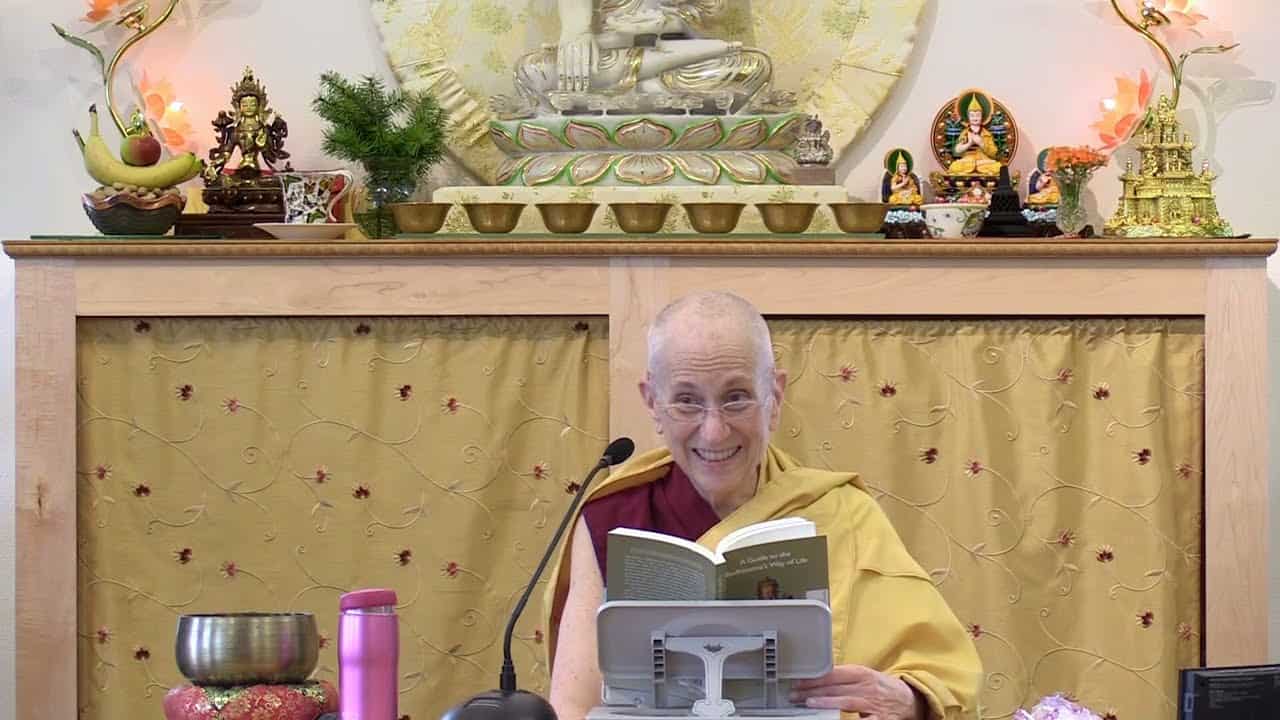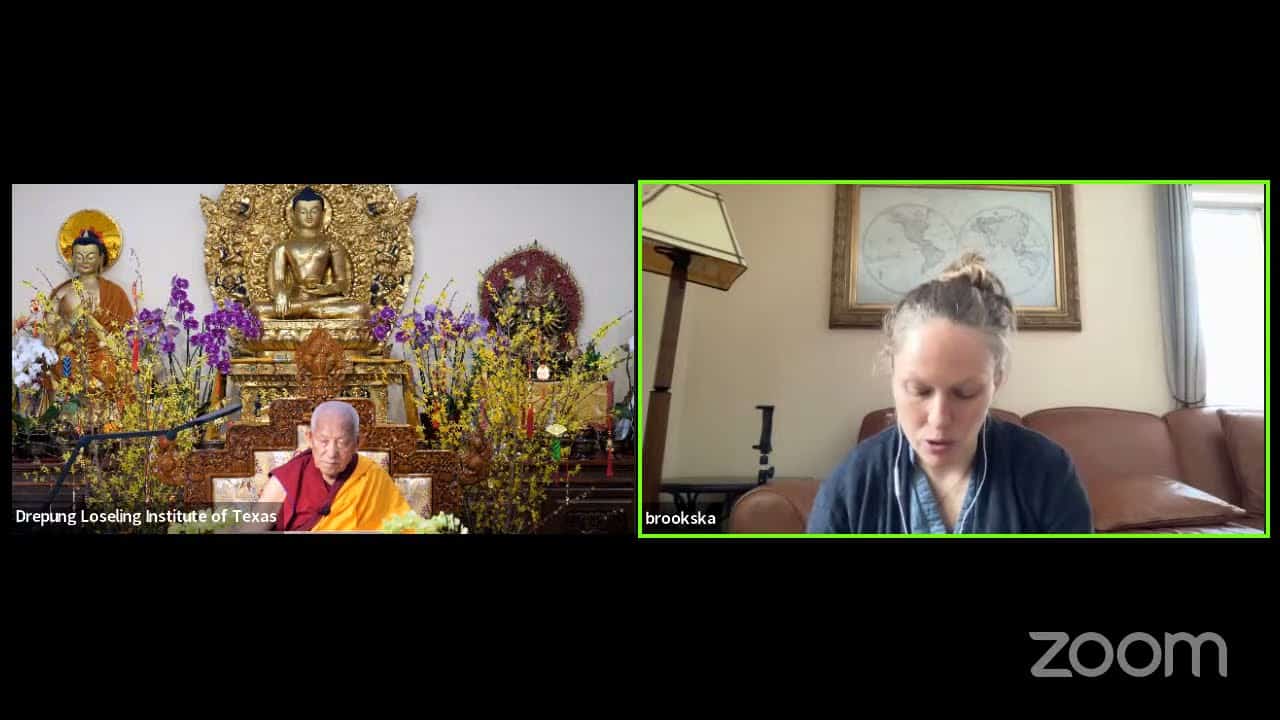Craving
52 Samsara, Nirvana, and Buddha Nature
Part of an ongoing series of teachings (retreat and Friday) based on the book Samsara, Nirvana, and Buddha Nature, the third volume in The Library of Wisdom and Compassion series by His Holiness the Dalai Lama and Venerable Thubten Chodron.
- Craving at the time of death
- Attachment to body, possessions, people and ego identity
- Craving for pleasant feeling
- Craving for existence or non-existence
- Three types of feeling corresponding to three types of craving
- Six types of craving based on objects, contact and sources
- Developing mindfulness and wisdom to counteract craving
Samsara, Nirvana, and Buddha Nature 52: Craving (download)
Contemplation points
- Consider: “The nature of samsara is such that we can never get everything we want, and even if we get it, we can’t hang onto it. Meanwhile, all the problems we don’t want come along freely; we don’t have to go looking for them. It’s fine to feel sad when you think about this, but remember not to look at it as you usually do. Now we’re seeing the difficulties we have and we know there is something we can do. That all these things happen simply because the causes for them have been created and if we stop creating the causes, the whole situation will cease to exist. So when we look at difficulties this way, we see that there is always hope and there is always a reason to be optimistic.” Does this change the way you view your self and the world around you? How might thinking in this way affect the choices you make?
- Why do you consider yourself most important over others? Explain more in detail what thoughts, emotions, and experiences lead you to this conclusion.
- Describe when eighth-link craving occurs and what is going on in the mind at that time. What triggers craving in your own mind? Spend some time with this. What can you do to lessen those attachments, practicing letting them go and interacting with them in a healthier, more beneficial way now?
- What are the three types of craving that arise while we are alive? Spend some time noting how feeling gives rise to craving in your daily life for each of these types. Spend some time considering that it’s the feeling itself that we’re attached to, not the object that triggers the feeling.
- When do you mostly crave for pleasant feelings? Is it when you are yearning for food, for a relationship, or do you crave for material things that provide pleasant feelings for you? Identify what you are craving for in your day to day life.
- What painful feelings are more prominent for you, mental or physical feelings. How do you seek to remedy them?
- From the book: “Developing mindfulness and wisdom to identify and counteract the different types of craving is essential. To do this, contemplate the various things you encounter and think about. Consider that they are merely fleeting conventions. They have no inherent essence. There is no me, no them.” With mindfulness, practice noticing experiences of craving in your life and also practice applying wisdom to the situation. In this way, habituate viewing all mental states and objects as transient, letting them go without attaching to them.
- What are the benefits of being free from craving? Imagine what this would be like?
Venerable Thubten Chodron
Venerable Chodron emphasizes the practical application of Buddha’s teachings in our daily lives and is especially skilled at explaining them in ways easily understood and practiced by Westerners. She is well known for her warm, humorous, and lucid teachings. She was ordained as a Buddhist nun in 1977 by Kyabje Ling Rinpoche in Dharamsala, India, and in 1986 she received bhikshuni (full) ordination in Taiwan. Read her full bio.


